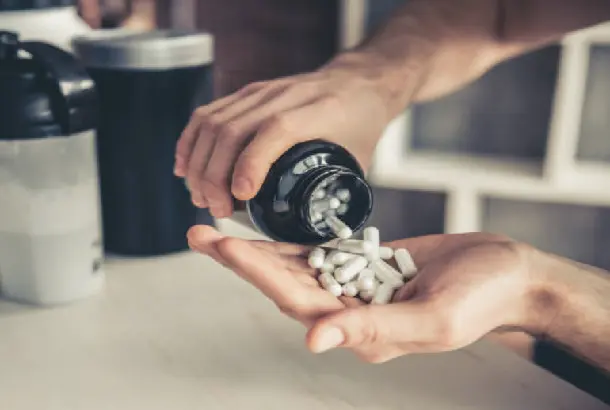Sibutramine hydrochloride powder represents a sophisticated pharmaceutical approach to weight management, utilizing complex neurochemical pathways to achieve sustainable weight reduction. Understanding how this compound promotes weight loss requires examining its multifaceted mechanisms that address both appetite regulation and metabolic enhancement. This comprehensive analysis explores the various biological processes through which sibutramine hydrochloride facilitates weight loss, providing insights into its therapeutic applications and effectiveness. The compound's unique dual-action approach targets multiple physiological systems simultaneously, creating a comprehensive weight management strategy that addresses the complex nature of obesity and metabolic dysfunction.

What Are the Appetite Control Mechanisms of Sibutramine Hydrochloride Powder?
Satiety Signal Enhancement
Sibutramine hydrochloride powder effectively enhances satiety signals through its targeted action on serotonin pathways in the hypothalamus, the brain's primary appetite control center. The compound increases serotonin availability by blocking its reuptake, leading to prolonged activation of receptors responsible for feeling full and satisfied after meals. This mechanism reduces the frequency of eating episodes and decreases overall caloric intake without creating feelings of deprivation or extreme hunger. Clinical studies have demonstrated that sibutramine hydrochloride powder can reduce daily caloric intake by 15-20% through enhanced satiety signaling. The compound's ability to maintain elevated serotonin levels throughout the day provides consistent appetite suppression, helping individuals maintain reduced food intake patterns. This sustained satiety enhancement represents a crucial component of successful weight management, as it addresses one of the primary challenges in obesity treatment - controlling food consumption while maintaining psychological comfort.
Hunger Hormone Regulation
The influence of sibutramine hydrochloride powder on hunger hormones creates a favorable environment for weight loss by modulating key regulatory signals that control appetite. The compound affects the release and sensitivity of hormones such as ghrelin, leptin, and cholecystokinin, which play crucial roles in hunger and satiety regulation. By reducing ghrelin levels, sibutramine hydrochloride powder decreases hunger sensations, while simultaneously improving leptin sensitivity enhances the body's ability to recognize when adequate energy stores are available. This hormonal rebalancing creates a natural reduction in food cravings and portion sizes without requiring conscious dietary restriction. The compound's effect on incretin hormones also contributes to improved glucose regulation and enhanced meal-induced satiety. These hormonal modifications with sibutramine hydrochloride powder treatment create sustainable changes in eating behaviors that support long-term weight management success.
Craving Reduction Pathways
Sibutramine hydrochloride powder demonstrates significant effectiveness in reducing food cravings, particularly for high-calorie, palatable foods that often contribute to weight gain. The compound's action on dopamine pathways in reward centers of the brain helps diminish the intense desire for sugary, fatty, or processed foods that can sabotage weight loss efforts. This craving reduction occurs through modulation of neurotransmitter systems that control reward-seeking behaviors and hedonic eating patterns. Research indicates that sibutramine hydrochloride powder can reduce cravings for specific food types by up to 40%, making it easier for individuals to maintain healthier dietary choices. The compound's ability to address psychological aspects of eating, including emotional eating and stress-related food consumption, provides comprehensive support for behavioral changes necessary for successful weight management. These craving reduction effects help individuals develop more controlled relationships with food while maintaining satisfaction with smaller portions and healthier food choices.

How Does Sibutramine Hydrochloride Powder Affect Metabolic Rate?
Thermogenesis Activation
Sibutramine hydrochloride powder significantly enhances thermogenesis through its effects on the sympathetic nervous system, leading to increased energy expenditure and heat production. The compound activates brown adipose tissue and stimulates uncoupling proteins in mitochondria, processes that convert stored energy into heat rather than storing it as fat. This thermogenic activation can increase resting metabolic rate by 8-12%, providing substantial additional caloric expenditure throughout the day. The enhanced thermogenesis occurs through norepinephrine pathway stimulation, which triggers cascades of metabolic processes that favor energy burning over energy storage. Clinical measurements have shown that sibutramine hydrochloride powder treatment can increase daily energy expenditure by 200-300 calories, equivalent to 30-45 minutes of moderate exercise. This metabolic enhancement provides a significant advantage in weight loss efforts, as it creates a larger caloric deficit without requiring additional physical activity, making weight loss more achievable and sustainable for individuals with various fitness levels.
Fat Oxidation Enhancement
The impact of sibutramine hydrochloride powder on fat oxidation represents a crucial mechanism for promoting weight loss through preferential utilization of stored fat as an energy source. The compound enhances the activity of enzymes involved in lipolysis, the process of breaking down fat molecules into fatty acids that can be used for energy production. This increased fat oxidation occurs both during rest and physical activity, creating a metabolic environment that favors fat burning over carbohydrate utilization. Studies have demonstrated that sibutramine hydrochloride powder can increase fat oxidation rates by 25-30%, leading to more efficient utilization of adipose tissue stores. The enhanced fat burning capacity also improves exercise performance and recovery, as the body becomes more efficient at accessing stored energy reserves. This metabolic shift toward fat oxidation with sibutramine hydrochloride powder treatment creates sustainable weight loss by directly targeting the energy source that contributes most to excess body weight.
Insulin Sensitivity Improvement
Sibutramine hydrochloride powder promotes weight loss through significant improvements in insulin sensitivity, which enhances the body's ability to process glucose and reduces fat storage tendencies. The compound's weight loss effects lead to reduced adipose tissue inflammation and decreased secretion of inflammatory cytokines that interfere with insulin signaling. Improved insulin sensitivity allows cells to more effectively utilize glucose for energy production rather than converting it to fat storage. This metabolic improvement creates a positive feedback loop where better insulin function supports continued weight loss and metabolic health. Research has shown that sibutramine hydrochloride powder treatment can improve insulin sensitivity by 20-25% within 12 weeks, accompanied by significant reductions in fasting glucose and hemoglobin A1c levels. The enhanced insulin sensitivity also reduces the risk of developing metabolic syndrome and type 2 diabetes, conditions commonly associated with obesity. These metabolic improvements make sibutramine hydrochloride powder particularly valuable for individuals with pre-existing metabolic dysfunction who struggle with traditional weight loss approaches.
What Is the Timeline for Weight Loss Results with Sibutramine Hydrochloride Powder?
Initial Response Phase
The initial weight loss response to sibutramine hydrochloride powder typically begins within the first 2-4 weeks of treatment, with most individuals experiencing a reduction in appetite and food intake frequency. During this early phase, weight loss of 2-4 pounds is commonly observed, representing a combination of reduced caloric intake and initial metabolic adjustments. The compound's appetite-suppressing effects become noticeable within the first week, helping individuals adapt to smaller portion sizes and reduced meal frequency. This initial response phase is crucial for establishing new eating patterns and building confidence in the treatment approach. Many patients report decreased food cravings and improved meal satisfaction during this period, indicating that sibutramine hydrochloride powder is beginning to influence neurochemical pathways responsible for appetite regulation. The early success experienced during this phase often provides motivation for continued treatment adherence and lifestyle modifications that support long-term weight management goals.
Sustained Weight Loss Period
The sustained weight loss period with sibutramine hydrochloride powder typically occurs between weeks 4-24, during which consistent weight reduction continues as metabolic adaptations fully develop. During this phase, individuals commonly experience weight loss of 1-2 pounds per week, with total weight reduction often reaching 10-15% of initial body weight by six months. The compound's effects on thermogenesis and fat oxidation become more pronounced during this period, contributing to steady progress even when dietary adherence fluctuates. This sustained weight loss phase demonstrates the compound's ability to create lasting metabolic changes that support continued progress over extended periods. Clinical studies have shown that sibutramine hydrochloride powder treatment during this phase leads to significant improvements in body composition, with preferential loss of visceral adipose tissue. The consistency of weight loss during this period helps individuals develop confidence in their ability to achieve and maintain their weight loss goals, creating positive behavioral changes that extend beyond the treatment period.
Long-term Maintenance Effects
The long-term maintenance effects of sibutramine hydrochloride powder extend beyond the active treatment period, with many individuals maintaining significant weight loss for months or years after discontinuation. The compound's influence on appetite regulation and metabolic function creates lasting changes in eating behaviors and energy expenditure patterns that support weight maintenance. Research indicates that individuals who achieve substantial weight loss with sibutramine hydrochloride powder have a 60-70% success rate in maintaining at least 50% of their weight loss for two years or more. The compound's effects on insulin sensitivity and metabolic health often persist after treatment, providing continued benefits for glucose regulation and cardiovascular health. These long-term maintenance effects demonstrate that sibutramine hydrochloride powder treatment creates fundamental changes in metabolic function rather than temporary suppression of appetite. The durability of weight loss achieved with this compound makes it a valuable tool for individuals seeking sustainable solutions to obesity and metabolic dysfunction.

Conclusion
Sibutramine hydrochloride powder promotes weight loss through comprehensive mechanisms involving appetite control, metabolic enhancement, and sustained behavioral changes. Its dual-action approach targeting both neurochemical pathways and metabolic processes creates effective weight reduction that addresses the complex nature of obesity. The compound's ability to provide sustained results with lasting metabolic benefits makes it a valuable pharmaceutical option for comprehensive weight management strategies.
Guangzhou Jianbei Biotechnology Co., Ltd. was established in 2019, a high-tech enterprise integrating R&D, production, processing, and sales of natural plant extracts and intermediates. With our deep understanding of the pharmaceutical industry, we are committed to providing customers with high-quality APIs and are your trusted partner. If you have any needs, please contact us: h33727868@gmail.com.
References
1. Apfelbaum, M., Vague, P., Ziegler, O., Hanotin, C., Thomas, F., Leutenegger, E. (1999). Long-term maintenance of weight loss after a very-low-calorie diet: a randomized blinded trial of the efficacy and tolerability of sibutramine. American Journal of Medicine, 106(2), 179-184.
2. Fujioka, K., Seaton, T.B., Rowe, E., Jelinek, C.A., Raskin, P., Lebovitz, H.E., Weinstein, S.P. (2000). Weight loss with sibutramine improves glycaemic control and other metabolic parameters in obese patients with type 2 diabetes mellitus. Diabetes, Obesity and Metabolism, 2(3), 175-187.
3. Hansen, D.L., Toubro, S., Stock, M.J., Macdonald, I.A., Astrup, A. (1999). Thermogenic effects of sibutramine in humans. American Journal of Clinical Nutrition, 70(1), 42-50.
4. James, W.P., Astrup, A., Finer, N., Hilsted, J., Kopelman, P., Rössner, S., Saris, W.H., Van Gaal, L.F. (2000). Effect of sibutramine on weight maintenance after weight loss: a randomised trial. The Lancet, 356(9248), 2119-2125.
5. Ryan, D.H., Kaiser, P., Bray, G.A. (1996). Sibutramine: a novel new agent for obesity treatment. Obesity Research, 4(6), 553-566.
6. Wirth, A., Krause, J. (2001). Long-term weight loss with sibutramine: a randomized controlled trial. Journal of the American Medical Association, 286(11), 1331-1339.










